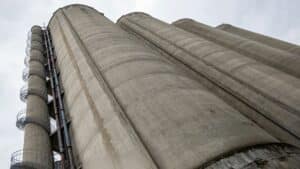When it comes to ensuring food safety in your food manufacturing facility, it’s crucial to be aware of the risks involved. With over 30 years experience in the industry, we have encountered various factors that can increase these risks.
In this article, we will explore the main risks that need to be considered and provide insights on how to mitigate them effectively. By following these guidelines, you can reduce the risk of contamination, maintain a safe environment, and protect both your company and consumers.
Understanding the Risks Involved:
The biggest risk for food manufacturing facilities is the presence of microorganisms that pose a threat to human safety and the integrity of their products. However, there are other risks that should not be overlooked. One such risk is the presence of foreign objects, which relates to insects. If proper cleaning procedures and timeframes are not followed, food manufacturing equipment could become a breeding ground for insects like cockroaches, stored product insects, flower beetles, moths and larvae worms. Emphasising the importance of adhering to a master cleaning schedule and timely cleaning routines to prevent infestations.
How to Mitigate Risks:
- Cleaning at correct intervals: One common mistake is not adhering to correct cleaning intervals. It is crucial to set up a master cleaning schedule that outlines Standard Operating Procedures (SOPs) to clearly indicate the frequency and method of cleaning for each piece of equipment or area. You can significantly reduce the risk of contamination and ensure a safe production environment by following this schedule.
- Working closely with maintenance teams to ensure accessibility: Certain equipment may have inaccessible areas or panels that are kept closed.Accessing these areas and opening closed panels to clean inside them on a regular basis is essential to minimizing the microbial burden.
- Utilise a Digital System: Switching to a digital barcode management system can streamline your cleaning processes and help reduce the risk of oversight or delays. With a barcode system, cleaning tasks are automatically triggered at the appropriate times, eliminating the possibility of human error or negligence.
- Re-assessing cleaning statistics and feedback: Regularly reviewing your cleaning statistics and feedback is vital to identify processes that work and address those that don’t. Analysis enables you to proactively address any failures or areas of concern. At Advanced Cleaning Services, we actively engage with clients, discussing issues of concerns and jointly find effective solutions to enhance overall food safety and prevent potential problems from arising.
- Hold cleaning staff accountable:To ensure consistent adherence to cleaning standards, it is essential to hold cleaning staff accountable for their responsibilities. Implementing a system like I-clean, that immediately addresses any deviations from the standard will ensure corrective action is taken promptly. This approach will also promote a culture of pride and accountability among the hygiene operators, resulting in a higher level of job performance and compliance.
- High access cleaning: Don’t overlook the importance of high access cleaning, especially in areas that are difficult to reach. Regularly scheduled high-level cleaning is necessary to remove accumulated product, such as flour or stored product that can get caught up in beams. As this build up of product could attract insects like confused flour beetles, moths etc. and potentially contaminate your entire production line.
In closing, reducing the risk of contamination in your food manufacturing facility is of paramount importance. By understanding the risks involved, implementing a master cleaning schedule with SOPs, adopting a digital barcode management system, actively assessing cleaning statistics, holding cleaning staff accountable, and adhering to high access cleaning, you can significantly enhance food safety.
Maintaining a clean and hygienic environment not only protects your consumers but also safeguards your company’s reputation and success.
Contact us to assist with specialised cleaning services for your food manufacturing plant.
The above article was written and adapted by Dean Lancaster, Food Technologist and CEO of Advanced Cleaning Services



